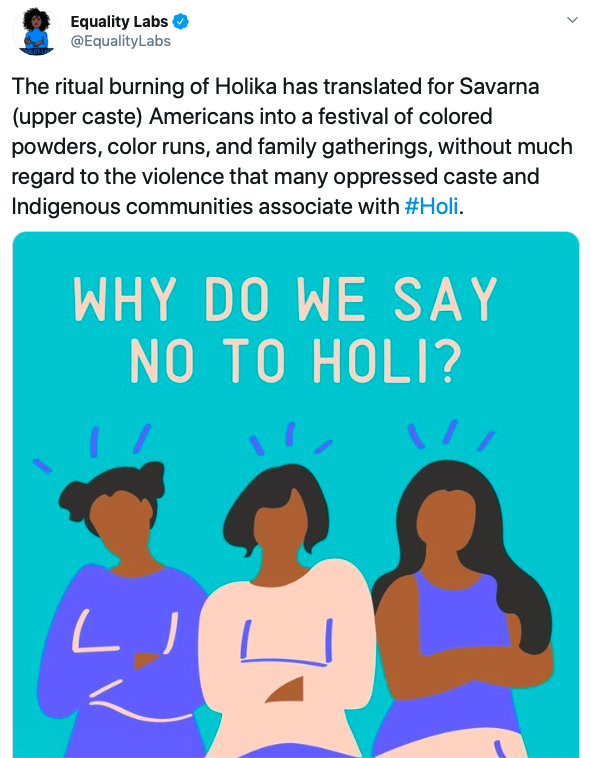Hinduphobia and anti-Hindu hatred can manifest in many ways both consciously and unconsciously — from a 6th-grader being called an idol worshipper and feeling marginalized in their class, to a college student being targeted and shamed by their South Asian professor as a heritage student; from an elected official being accused of dual loyalty and held to a double standard because of her stance on US-India relations, to a Hindu American being called a Nazi supporter for the same. There are also those who deny the existence of Hinduphobia and anti-Hindu hatred, which in itself can be a manifestation of Hinduphobia and anti-Hindu hatred.
Indeed the right to free speech protects hate speech. But having a legal right to say something doesn’t make it right or true. When the spectrum of terms and tropes listed in this glossary are used regularly, over time, the perception of Hindus as grotesque, untrustworthy, bigoted, evil, or violent grows and generates greater and greater levels of danger to Hindus’ lives and wellbeing.
It is our hope that with greater understanding of the ways that Hinduphobia and anti-Hindu hate manifests around us, Americans at large will be better able to recognize malintended inaccuracies, false allegations, and hateful attacks in order to stand up and speak out together to protect the well-being of Hindus and promote dignity and mutual respect for all people.
Have a word or phrase you think we should add? Please send it to info@hinduamerican.org.




















































